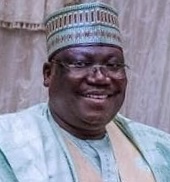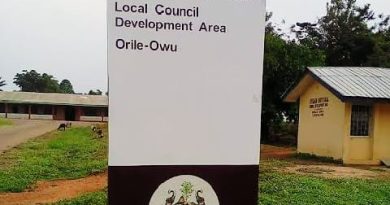“Section 84(12) Electoral (Amendment) Act: A Call For Professionalism Of Legislative Drafting In Nigeria”
By Dr. Tonye Clinton Jaja
The views expressed in this short article are my personal opinion, not those of my employer.
I write in my capacity as the Secretary of the Association of Legislative Drafting and Advocacy Practitioners-ALDRAP. This is a professional Association of lawyers and other professionals dedicated to promoting professionalism and improving the quality of legislation in the fields of legislative drafting through continuing education and training. We aim to become the “ICAN” of the legislative discipline within the legal profession.
The President of the Federal Republic of Nigeria has written to the National Assembly to request an amendment of section 84(12) of the Electoral (Amendment) Act, 2022. According to Mr. President the said section violates the relevant section of the 1999 Constitution of the Federal Republic of Nigeria (CFRN) (as altered).
Assuming (without conceding) that the claims of Mr. President were true and correct, the question arises: “who were the officials that were responsible for the drafting of the initial Electoral (Amendment) Bill, 2021?”. Considering that it was an Executive Bill (an Executive Bill is a Bill that originates from the Executive Branch of government as opposed to a Private Member Bill which originates from members of the Legislature), it is assumed that it is the responsibility of the Legal Drafting Department of the Federal Ministry of Justice.
If that is the case, then in accordance with one of the principles of Legislative Drafting, checking for compliance of any Bill with the provisions of the 1999 CFRN is the responsibility of the said Department.
Ideally, every Bill ought to undergo scrutiny before it is submitted to the legislature for enactment. One of the items on the checklist, is the check for compliance with the 1999 CFRN.
Furthermore, considering that Nigeria follows the Common law drafting tradition that we inherited from the United Kingdom, another principle of Legislative Drafting is that ideally, every Bill ought to be drafted by a team of four drafters. Two of the the team members are drafters, while two of the drafters are the “checkers” to ensure that there is a thorough scrutiny.
However, we do not live in an “ideal” world especially in Nigeria, where more often than not, the pressure on Legislative Drafters is to produce Bills within timelines that often compromise quality.
My personal opinion is that there is a need to professional legislative drafting services in Nigeria to prevent or minimise this situation.
In otherwords, the responsibility for drafting Bills and legislation ought to be specifically assigned to professionals. In the year 1869, the United Kingdom established the Office of Parliamentary Counsel, these are the lawyers and professionals that draft all the Bills and legislation enacted by the Parliament of the United Kingdom. In the year 1971, the United States of America also established the Office of Legislative Counsel of the Senate (and another Office of Legislative Counsel of the House of Representatives) of the Congress. These are the officials responsible for drafting all the Bills and legislation enacted by the Congress of the United States of America. In both the UK and the USA, in addition to these government lawyers, agencies/offices, Private legal practitioners and law firms are permitted to draft Private Member Bills for legislators. However, they must be registered with the Office of the Speaker of the UK Parliament before they can operate this is to ensure that these private legal practitioners adhere to good practice and standards of Legislative Drafting.
In Nigeria, Hon. Nicolas Ossai (House of Repy, National Assembly) sponsored a Bill entitled “Offices of the Legislative Counsel of the Federal Republic of Nigeria, 2019. It is HB. 451. It seeks to establish Offices of Legislative Drafting for the Executive branch and the National Assembly. This is a welcome development.




